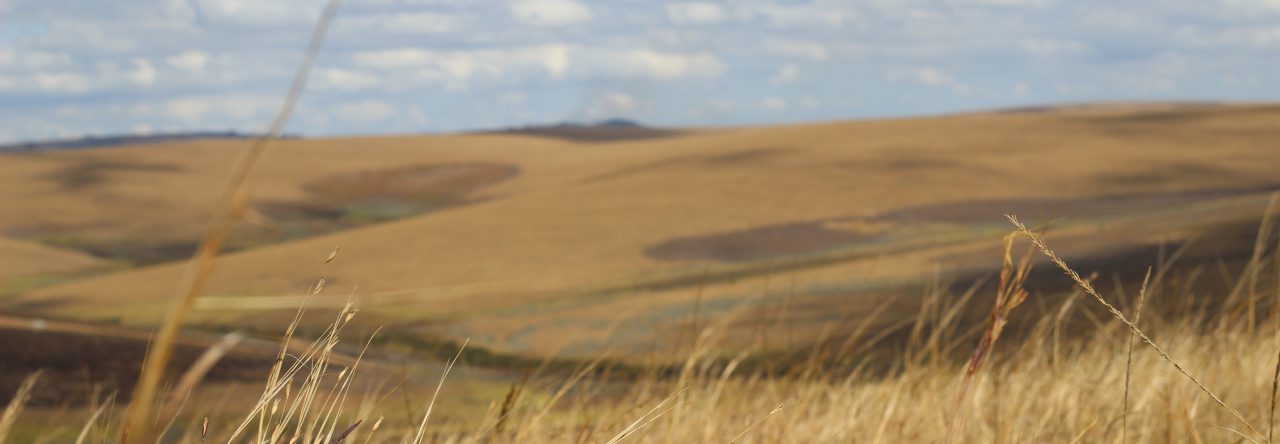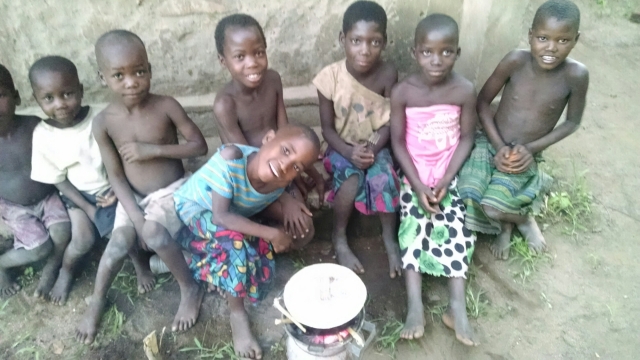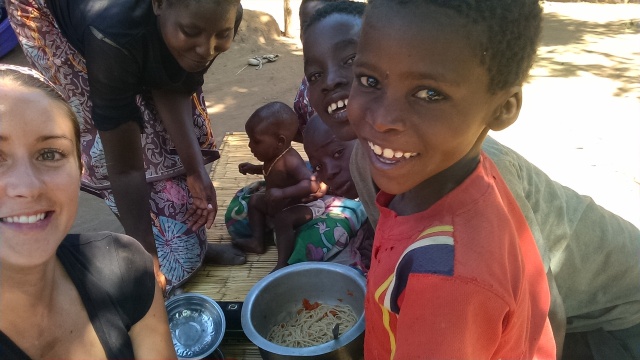Ichi!
Hop.
Icho!
Hop.
Ichi!
Hop.
Icho!
Hop.
Three little girls pranced through my yard, hoping from one tuft of greenery to the next like giant grasshoppers. Between each hop, they bent over and plucked out a small green plant. “This one!” They exclaimed, “That one! This one! That one!” The three girls were teaching me how to find okra. Only three or four inches high, the okra pods had not yet developed but the leaves were present. “Chiri, these leaves make a great relish,” they told me. “With nsima, it’s delicious.”
Upon collecting a few handfuls of the plants, we sat on my front porch. I fetched a bowl and we began removing the leaves from the stems. First, they said, you must take a clump and smack in on your palm to remove the dirt. Only then can you remove the leaves. When I started prepping my pile, one of the girls pulled out a piece and flapped it around in the air. “Chiri! This isn’t okra!” she burst out. The other girls giggled at my in ineptitude. I was amazed at their ability at such young ages (7 or 8 years) to differentiate between two plants which, to me, looked exactly the same.
The next step was cooking. Living without electricity means that I start multiple fires everyday, but yet again my skills were trumped by the girls. Using only one handful of grass, they successfully lit the fire and knew exactly when to fan it, how to blow on it with finesse, and when to just sit back and let it catch. (Since my okra lesson, I have attempted to emulate their fire techniques and have somewhat improved my game).
To cook the “relish” (side dish), they taught me to wait until the water reaches a certain warmness then add the leaves with baking soda. From then on, there was quite a bit of testing to see how it was cooking. One girl would scoop up some water and drip it into her eager friends’ outreached hands. They would then lap up the steaming water and almost every time, decide that the leaves needed more salt. Of course. Later, a minor squabble broke out over when the water should be drained, but after exhaustive testing, they reached a consensus.
We finally drained the green-stained water into another empty pot and let the okra leaves continue to sit over the fire for a few minutes. “Chiri!” One of the girls nudged me and placed into my hands the large pot of piping hot green liquid. “Now we can drink the water!” She said with zeal comparable to that of cheese-starved PCVs scarfing down a pizza. I shrugged and tipped the pot back. The water tasted like salt. Still, the kids loved it and passed around the pot like a bottle of cheap alcohol until it was finished. With my elementary chichewa, novice cooking skills and crude manners, I felt like a kid again. Just one of the iwes learning something new. And it was wonderful.
My teachers. (With of course a handful of observers that snuck into the picture).








